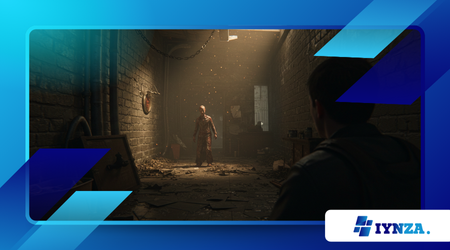The Most Controversial Video Game Bans in History

Throughout gaming history, certain titles have sparked outrage, debate, and in many cases, outright bans. From moral panic to political pressure, games have been censored or prohibited across different countries for reasons ranging from graphic violence to perceived threats to cultural values.
Anúncios
These moments not only shaped how games were viewed by the public but also influenced future content, ratings, and global publishing strategies.
In this article, we’ll explore the most controversial video game bans, diving into the stories behind them, the countries involved, and the impact these decisions had on both gamers and the industry.
Some were banned for shocking imagery, others for political satire—but each left a mark that still echoes in gaming conversations today.
Notorious Cases That Shaped the Industry: Most Controversial Video Game
Throughout the decades, certain video games have ignited intense global controversy.
Whether due to their violent content, political commentary, or boundary-pushing mechanics, these titles were deemed too provocative for release in certain regions.
Below, we look at ten of the most high-profile bans—each one revealing something about the societies that chose to block them, and the conversations those bans sparked within the gaming world.
1. Manhunt 2 (2007)
Country Banned: UK, Ireland, Germany
This Rockstar title pushed the envelope with extreme violence and psychological horror. The UK’s BBFC refused to classify it, effectively banning its release.
Even after censorship adjustments, the controversy around the game’s brutal content set new boundaries for acceptable depictions of violence.
Read also: Upcoming Game Sequels Everyone Is Talking About
2. Postal 2 (2003)
Country Banned: Australia, New Zealand, Sweden
With its gratuitous violence, offensive humor, and open-world chaos, Postal 2 was banned in multiple regions.
Authorities cited public decency, while others criticized its portrayal of violence against civilians. The ban only fueled the game’s cult status.
3. Grand Theft Auto: San Andreas (2004)
Country Banned or Modified: Australia, US (temporarily re-rated AO)
The discovery of the hidden “Hot Coffee” sex mini-game triggered global backlash.
While not an official ban, many retailers pulled it off shelves, and Rockstar was forced to re-release the game with the content removed. This moment reshaped how hidden files are treated in ESRB ratings.
4. Call of Duty: Modern Warfare 2 (2009)
Controversial Scene: “No Russian” mission
Modified or Removed In: Russia, Germany, Japan
The infamous airport massacre level sparked international outrage.
While not outright banned, versions were altered to remove the scene or penalize the player for participating. It triggered a lasting conversation about player agency in violent scenarios.
5. Devotion (2019)
Country Banned: China
Red Candle Games’ indie horror title was pulled from all platforms after a hidden Winnie-the-Pooh reference—mocking China’s president—was discovered.
The backlash was immediate. Licensing deals collapsed. The game vanished for years. It remains one of the clearest examples of political censorship in modern gaming.
6. Battlefield 3 (2011)
Country Banned: Iran
The depiction of a U.S. military invasion of Tehran in Battlefield 3 led to protests and an official government ban.
The game’s portrayal of conflict in the Middle East drew political fire, even sparking street-level raids on gaming shops in Tehran.
7. RapeLay (2006)
Country Banned: Multiple including Argentina, Indonesia, and the UK
This controversial Japanese title, which simulated sexual assault, was widely condemned and banned outright in numerous regions.
The international outrage pressured retailers and digital platforms to revise content guidelines and moderation.
8. Command & Conquer: Generals (2003)
Country Banned: China
Its portrayal of Chinese forces in a negative light—particularly with themes of terrorism and internal collapse—led to a national ban. The game’s storyline was deemed damaging to national pride.
9. Fallout 3 (2008)
Country Banned/Modified: India
The original release referenced real-world drug names like morphine, which triggered concern from Indian authorities.
The game was altered to change references to fictional drug names, highlighting how localization can serve as a form of censorship.
10. The Guy Game (2004)
Country Banned: US (effectively)
This game featured real video footage of girls exposing themselves for points. One of the participants turned out to be underage, leading to legal action and a complete recall.
While not banned by government decree, its disappearance became a landmark in adult content regulation.
Why Games Get Banned
Most bans are driven by one or more of the following factors:
- Extreme or sadistic violence
- Sexual content, especially involving minors or non-consent
- Political or religious offense
- Cultural taboos
- Public outcry or media panic
A 2024 Global Games Regulation Report showed that 46% of bans in the past decade stemmed from political sensitivity, while 38% were linked to graphic violence.
One Analogy to Remember
Think of controversial games like banned books. Some are restricted because they challenge authority. Others push boundaries society isn’t ready to cross. But they all force reflection on where expression ends and regulation begins.
A Statistic That Explains the Trend
In 2023 alone, over 140 video games faced restrictions, modifications, or bans across 19 countries. This marks a 22% increase over 2020, revealing how governments are taking a more active role in shaping digital media.
Conclusion
The most controversial video game bans weren’t just about violence or vulgarity. They were flashpoints in a cultural debate about expression, values, and control.
Some bans led to important industry changes. Others only amplified the message the games were trying to send. And while every country draws the line differently, the global gaming community continues to question who should have the power to decide what we can or can’t play.
These stories remind us that games aren’t just entertainment. They’re mirrors, battlegrounds, and in many cases, warnings.
FAQ
1. Are video games still banned today?
Yes, games are still banned or censored in countries like China, Iran, and North Korea, among others.
2. Can players access banned games through VPNs?
Often yes, but doing so may violate local laws or result in penalties depending on the country.
3. Why do some indie games face bans more than AAA titles?
Indie games sometimes tackle controversial themes more directly, making them easier targets for censorship.
4. Do game bans ever get reversed?
Occasionally. Some games are unbanned after edits, time, or shifts in cultural perspective.
5. How do developers respond to bans?
Some comply with regional edits, while others choose to withdraw entirely or release alternative versions.
6. What rating systems help avoid bans?
Boards like the ESRB, PEGI, and CERO provide guidance, but local governments may still intervene.
7. Is there international pressure to standardize game content laws?
Some global trade bodies advocate for unified standards, but cultural and political differences make it unlikely.
8. Do bans affect game sales significantly?
Yes. Lost access to large markets like China or Australia can heavily impact revenue.
9. Are controversial games more successful?
Not always. While some benefit from notoriety, others are buried by legal and public backlash.
10. What’s the most famous banned game?
Manhunt 2 and Postal 2 are among the most cited, but Devotion‘s removal had arguably the deepest industry impact.
